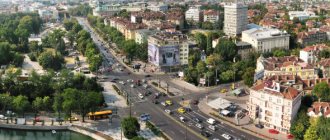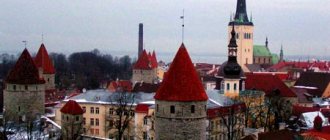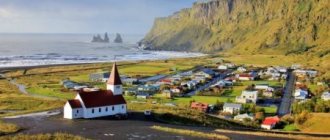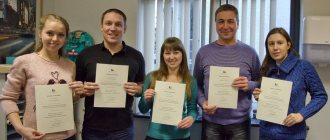Are we needed in Bulgaria?
Bulgaria has not been among the worst EU countries in terms of unemployment for a long time. The authorities have made a lot of efforts to change the situation - and it has borne fruit: if in June 2021 the figure was 6.8%, then in the same month of 2021 it dropped to 5.7%. And this is even below the EU average.
At the beginning of summer, the Ministry of Labor opened 17,339 vacancies, judging by which the majority of workers are needed in the processing industry, trade and restaurant and hotel services.
In the first half of 2021, the number of seasonal workers in the country who came from outside the EU doubled. And local authorities are already thinking about making it easier to obtain a temporary work permit. For the most part, Ukrainians, Russians, and Moldovans come here. By the way, in 2021, the majority of applications for a residence permit in Bulgaria were submitted by citizens of Turkey, Russia and Ukraine.
Burgas airport welcomes visitors.
But the most pressing issue in the country is regarding qualified specialists: Bulgaria has not experienced such a shortage of professionals over the past eight years. Most local companies need engineers, drivers, IT specialists, medical workers, sales representatives, restaurant and hotel employees, managers, financiers, architects, and builders. Most HR representatives note that the main search problems are the lack of suitable candidates, as well as their lack of skills and experience in the profession.
It is not difficult to explain this trend. First of all, the impact is the departure of local specialists to more developed countries, where they will be paid much more. The second point is the development of a tourist destination. Bulgaria's income from tourism is growing steadily. Over the 11 months of 2021, the country earned more than $4 million from vacationers, and profits for the first four months of 2021 were 11% higher than for the same period in 2021.
So if you are a highly qualified specialist with experience and want to live in the country for a while, having found a job for the season (at sea in summer, in the mountains in winter) - you can safely start looking!
We have also already mentioned cheap real estate in the country. By the way, thanks to this fact, last year Russians and Ukrainians became the most active investors in Bulgarian property. For example, a studio apartment in Sunny Beach can be bought here for $9,000-12,000. Don't believe me? Take a look at our housing offers in Bulgaria and see for yourself!
Work and Travel Bulgaria
The FLeaders company offers Ukrainian students work for the summer 2021 in Bulgaria on the Black Sea coast under the Work & Travel Bulgaria program. Mostly work places in Bulgaria are offered in hotels, restaurants and shops in Sunny Beach, Varna and Burgas. Seasonal work involves summer internship with Bulgarian employers from May to September. The salary is small, about 400-500 Euros per month, however, as a rule, employers pay for accommodation and food for participants in the Work and Travel Bulgary program. Bulgaria is known for its inexpensive holidays for both families and children, which attracts tourists from European countries.
What about the United States of America and the US Work & Travel program?
How to find a job?
Bulgaria is a small country; most people search for places here through relatives and friends. If you don’t have any, we recommend that you first come here on a tourist visa and independently visit local employment centers and offices of large companies to find out about the current situation regarding your specialty. During such a trip, it will be useful to make personal acquaintances with local residents.
Immediately pay attention to the large cities of the country - Sofia, Burgas, Plovdiv. Especially when it comes to seasonal work. The highest salaries and number of vacancies are in the Bulgarian capital, good wages are also in the South-Central region. The lowest salaries are in the South-West region.
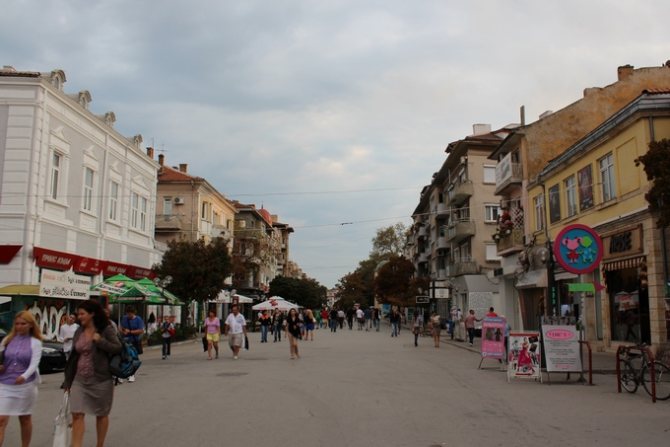
The easiest way is to go to Bulgaria for a season. You will need basic knowledge of the language and a work permit.
Websites and media
If you decide to look for work remotely, first of all, take a look at the website of the National Employment Agency in Bulgaria. There are news related to the local labor market, current vacancies, legal documentation, and requirements.
Additional job search resources:
- Jobs.bg;
- JobTiger.bg;
- Zaplata.bg;
- Rabota.bg;
- KARIERI;
- ALO.bg;
- CareerJet;
- Learn4Good (internships, training, vacancies);
- Russian-language sites (mainly for searching for seasonal work): 24RU.com, EuRabota, Jooble, Work abroad, Seasonal work;
- Driver-bg.eu – vacancies, useful information, discussions for those who intend to work in Bulgaria as a truck driver or driver of another vehicle.
other methods
- Local media: Trud, Diary, 24 Hours.
- LinkedIn is one of the most reliable ways to find a job, especially if you work in the IT field, are an architect, engineer, designer, translator, etc. Two points are important here: a well-filled profile, indicating experience, skills, and place of residence. To ensure that Bulgarian HR officers can find you, change your city to Bulgarian.
- Recruiting Agencies: List can be found on yellowpages. Be careful when looking for work through an agency, especially if we are talking about seasonal work and agreeing on all the details purely online! There are a lot of unscrupulous fake companies in Bulgaria offering “dream” vacancies for a certain upfront fee (for paperwork). If you come across this option, take the time to check the agency's background and reviews. But it’s better to come to Bulgaria yourself and go to a local recommended hiring company on the spot. Because in addition to the fee for paperwork, you will have to pay 12-25% of your first salary for a device in a suitable specialty.
By the way, on yellowpages you can also find large Bulgarian organizations in the types of activities you are interested in and send your resume.
How to find work in Bulgaria
Finding a job in Bulgaria consists of several stages.
Job Search Resources
Employment should begin with a job search. You can send your resume to large Bulgarian companies or negotiate with a local recruitment agency. But the easiest way to find a job is through the Internet.
Vacancies are published on the following sites:
- National Employment Agency. Announcements, news, and useful legal information regarding employment are published.
- Work abroad. Russian-language site with offers of seasonal and skilled work for migrants.
- Jobs. One of the largest local job search sites in Bulgaria.
- Driver. Forum for finding a job as a driver.
What documents are needed
To be legally employed, you need a work visa as well as a work permit. We have already talked about how to obtain these documents in other articles on the MigrantuMir portal.
Employment in Bulgaria - step-by-step instructions
- Find a job. You can search for vacancies via the Internet, with the help of intermediaries or personnel search agencies. Contact the employer in advance and send your resume.
- Pass the interview. This can be done online; it is not necessary to visit Bulgaria.
- Sign an employment contract.
- Apply for a work visa.
- Get a work permit.
Working in Bulgaria is an opportunity to gain a foothold in one of the European countries, obtain a residence permit, permanent residence, and then citizenship. However, this requires qualified specialists who are willing to work hard.
Subscribe to Migrantu Mir: Yandex News.
Requirements for foreigners
- Bulgarian language. There is no need to flatter yourself with hopes that Bulgaria is a country in the post-Soviet space, and therefore many here speak Russian, and you can get a job without knowing Bulgarian. If you are a highly qualified specialist, you will have to learn the Bulgarian language before moving, since in any case you will need to contact locals and undergo an interview (and also pass an exam in Bulgarian, which is discussed below). And while the older generation can still communicate with you, young people and middle-aged people know Russian very poorly.
With the English language, not everything is so smooth here either, but knowing it is your additional advantage. Perhaps the only option where you can limit yourself to English only is an international company (for example, IT). If you want to go to the country for a season, then it’s a little simpler: getting a job as a laborer, maid, or dishwasher, you will only need basic knowledge of the language. Although for the position of a waiter or administrator you will have to improve your Bulgarian a little.
- Diploma confirmation. A required item for some professions (medics, lawyers, engineers, teachers, etc.). It involves checking existing professional knowledge with the requirements of the Bulgarian educational system.
It is carried out in several stages. First of all – translation, legalization, certification of the diploma (all foreign documents undergo the same procedure). Next, it is possible to take an exam in the Bulgarian language and transfer the diploma to NACID (National Center for Information and Documentation).
Nostrification involves verifying the authenticity of a document and comparing existing data with current requirements. If training programs for a specific specialty vary greatly (for example, among lawyers), you will need to undergo additional testing to determine your knowledge of the specifics of the country. By the way, the diploma recognition service is free - you only have to pay for translation and legalization. The review period is about two months, since the commission meets only once a month.
Highly qualified specialists who will be involved in the national economy will have to pass an exam in the Bulgarian language (general and narrowly focused, on knowledge of the terminology of their profession). For example, this stage is mandatory for doctors. The exam is being held at TsKOKUO. The center's website contains dates for upcoming tests. Regarding the cost of courses, here is an example of prices from the Language Training Department.
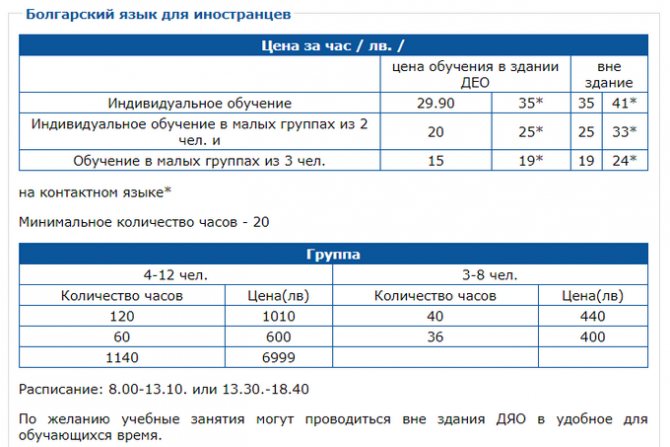
This is the order of prices for language courses at Sofia University. St. Clement of Ohrid. Here, one hour of tutoring costs $8 and above.
By the way, on the website of the Bulgarian Ministry of Health there is all the information on the recognition of medical qualifications in the country.
Work permit
Please note that having a residence permit in Bulgaria does not automatically give you the right to work. In most cases, a permit will be required, and the potential employer will submit a request for it to the local Department of Labor. This document in Bulgaria is not required only for the following categories of citizens:
- Persons with permanent residence in the country or long-term residence permit (issued after five years of stay in the country), as well as members of their families. Read about the visa regime in our article.
- Employees, representatives of foreign companies whose activities are carried out on Bulgarian territory.
- Refugees, as well as people who arrived in the state for humanitarian or political purposes.
- Members of the board of directors of local companies.
- Family members of highly qualified specialists who have a Blue Card (a little over a year ago Bulgaria joined this EU program).
By the way, people who moved to the country on a student and retirement visa can also start looking for work. But keep in mind that in the first case there is a limit on the number of working hours (no more than 20 per week), and in the second, take into account age: to find a worthy place, you need a sought-after specialty and very convincing experience and experience.
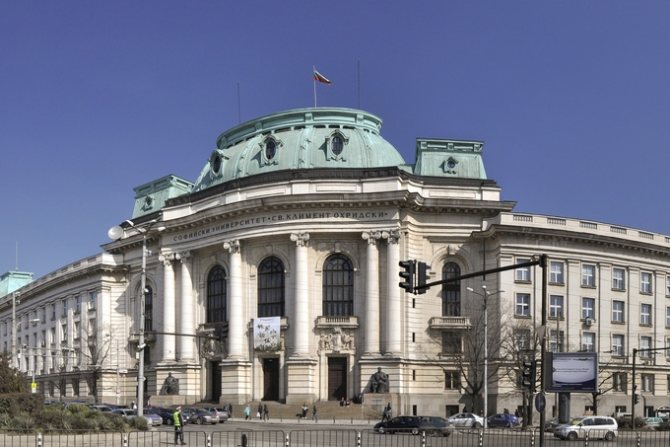
Studying at a university in Bulgaria, for example, in Sofia, also gives the right to work, but with some restrictions.
In general, the procedure for obtaining a work permit is as follows:
- You find a potential employer, go through an interview, discuss all working conditions.
- The employer applies to the National Employment Agency with an application and a package of documents. Some of them are provided by you (a copy of your passport, color photos, diplomas and certificates confirming your qualifications and skills), and some are provided by the employer. In particular, it explains why you are suitable for this position and why there were no suitable candidates on the Bulgarian market, as well as among other EU applicants. The employer indicates the working conditions that he offers you: social security, vacations and sick leave, number of working hours, salary level (an important point if you are applying for a Blue Card).
Obtaining a work permit takes 15-30 days (depending on the demand for a specialist). The document is usually valid for one year (comparable to the employment contract) with the possibility of extension. But at the same time, during this entire period you will have to work in the company that hired you. If you want to change employer, you need to go through the entire procedure again.
Seasonal workers also require a permit, but it will only be valid for the period of performance of the relevant work.
Visa for work in Bulgaria
To move to the country for work, you need to obtain a long-term visa type D, for which you should apply to the Bulgarian Consulate of your country or the nearest state.
Required documents:
- A completed application form.
- Certificate of knowledge of the Bulgarian language (required depending on the specialty).
- International passport (until expiration date - at least 1.5 years).
- Color photos of the corresponding sample.
- Medical insurance (coverage amount – at least $35,000).
- Certificate of no criminal record.
- A bank statement showing that you have financial resources for the first time (an employer's guarantee is also accepted).
- Work permit and employment contract.
- Proof that you have a place to live in Bulgaria (purchase or rental agreement).
The last point is one of the most unpleasant, since in fact, while you wait to receive a visa (which is about a month), you will have to pay for a house or apartment in vain. But this is an obligatory moment. It is not necessary to go to Bulgaria to find a suitable option - you can issue a power of attorney to a local (friend, agency representative, “HR person” from the company where you will work), entrust him with the search and execution of the lease agreement.
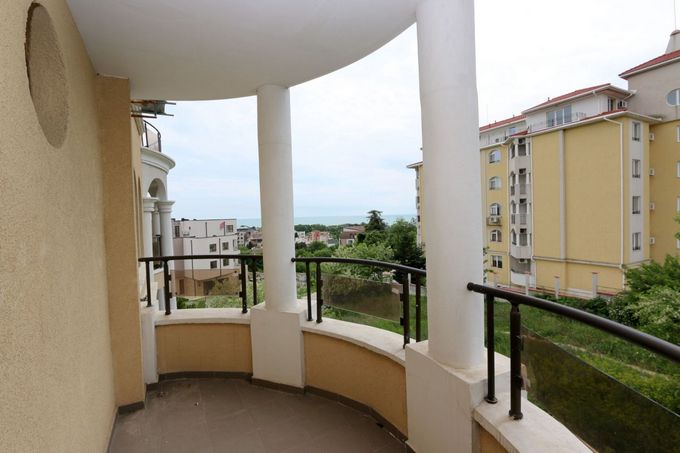
By renting or buying an apartment in Varna, you can admire, for example, this view of the sea every day.
Obtaining a visa usually takes a month, and within three months after arriving in the country you need to register at the local migration office and receive a residence permit in 1.5-2 weeks.
Work in Bulgaria
We announce the recruitment of personnel to work in Bulgaria for the summer season 2020 with a contract start date of 07/01/2020 for 3 months with the possibility of extension.
Features of the work program in Bulgaria:
The selection of candidates is based on questionnaires and Skype conversations. Documents will be accepted until June 20, 2021 Places of work: sunny coast of Bulgaria – 4* hotels Schedule: 6/8/1 + additional overtime hours
Conditions: accommodation, travel, meals at the expense of the employer
We work with citizens of the Russian Federation, Ukraine, Moldova, Belarus, Uzbekistan, Kazakhstan, Turkmenistan, Kyrgyzstan, Tajikistan
Vacancies:
1. Reception workers - (m/f, over 25 years old) - minimum 1 season work experience required, spoken languages: English and German, schedule: from 8:00 to 20:00 and 20:00 to 8:00 then 1 day day off, salary 450 €
2. Hotel cleaners - (women over 18 years old), schedule 8/6/1, salary 330 € (additional payment possible for overtime 4 hours a day + 1/2 rate)
Maids: (women over 18 years old), schedule 8/6/1, salary 330 € (additional payment possible for overtime 4 hours a day + 1/2 rate)
3. Restaurant workers - pastry chef, cook, waiters, bartender, kitchen workers, dishwashers, salary from 330 euros - 450 euros (additional payment for overtime is possible)
4. Pool savior - (m/over 20 years old) - Minimum 1 season work experience is required, schedule: from 8:00 to 20:00 / 7 days, salary 500 €
Massage therapist - (m/f over 20 years old) - Certificate required, work experience of at least 1 season, spoken English and German, salary 400 € + 5% of turnover
The work program includes:
— flight Russia – Bulgaria and back; — free transfer; — free three meals a day; — free accommodation in staff quarters; — work schedule: 6 days a week; - medical service; - visa support; - monthly payment of money from 330 - 450 euros (possibility of additional payment for processing); — certificate (if necessary); — presence of a curator for the entire duration of work
Requirements:
- age from 19 years; - positive attitude
Program cost: 15 thousand rubles, paid in stages
Additional expenses:
— medical insurance 30 euros for 90 days — consular fee 35 euros
If you want to apply for this program, you need to download and fill out a form, and then send it to the email address [email protected] with the note “Internship in hotels in Bulgaria.” You must attach color photos to the application form, size 3.5x4.5, portrait, with a smile and full-length size 9x12, in official clothing, always with a smile.
In-demand specialists
If you are a professional in one of the following fields, you can safely try to find a suitable vacancy in Bulgaria and count on moving:
- engineers, architects;
- narrow specialists in the field of construction (masons, carpenters, electricians, installers, etc.);
- drivers;
- doctors, junior and paramedical personnel;
- production operators;
- seasonal workers (industry, agriculture, hotel and restaurant business, construction);
- financiers and accountants;
- IT specialists;
- teachers.
Salaries
The level of the minimum wage is revised every year by the country's Council of Ministers, based on a 40-hour working week. As of January 1, 2018, this figure was $306. The minimum rate per hour is $1.8.
Yes, the numbers are disappointing, but if you look at the dynamics, then compared to 2021, this figure has increased by almost 10%, and over the past six years - by 47%. True, when compared with other EU countries, the “minimum wage” in Bulgaria is the lowest. On the other hand, living here is also not as expensive as in other EU countries.
